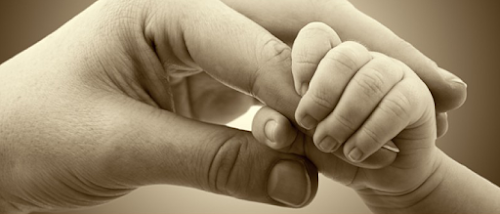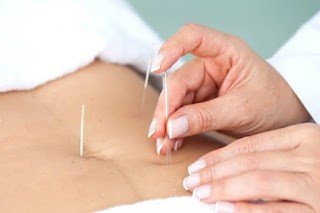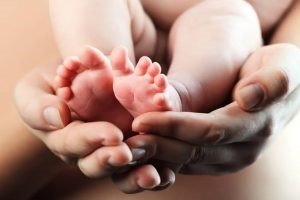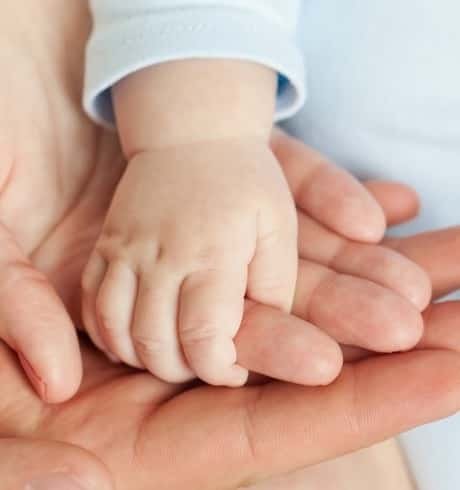Acupuncture For Infertility

Infertility is “a disease of the reproductive system defined by the failure to achieve a clinical pregnancy after 12 months or more of regular unprotected sexual intercourse.”
Infertility is fundamentally the inability to conceive a baby. Infertility is a state of a female who is unable to carry a pregnancy to full term.
Women become less fertile as they get older. For women aged 35, about 94 out of every 100 who have regular unprotected sexual intercourse get pregnant after three years of trying. For women aged 38, however, only 77 out of every 100 do so. The effect of age on men’s fertility is less clear.
In people going forward for IVF, roughly half of fertility problems with a diagnosed cause are due to problems with the male, and about half are due to problems with the female. However, about one in five cases of infertility has no clear diagnosed cause.
Male factor infertility accounts for 25% of infertile couples, while 25% remain unexplained. 50% are female causes with 25% being due to anovulation and 25% tubal problems or others.
Other Symptoms:
1. Irregular menstruation
2. Amenorrhea
3. Dysmenorrhea
4. Galactorrhea
5. Distending pain in breast
6. Aches in the waist
Primary Infertility
When a female is unable to ever bear a child, either due to the inability to become pregnant or the inability to carry a pregnancy to a live birth she would be classified as having primary infertility. Thus women whose pregnancy spontaneously miscarries, or whose pregnancy results in a stillborn child, without ever having had a live birth would present with primary infertility.
Secondary Infertility
When a female is unable to bear a child, either due to the inability to become pregnant or the inability to carry a pregnancy to a live birth following either a previous pregnancy or a previous ability to carry a pregnancy to live birth, she would be classified as having secondary infertility. Thus those who repeatedly spontaneously miscarry or whose pregnancy results in a stillbirth, or following a previous pregnancy or a previous ability to do so, are then not unable to carry a pregnancy to a live birth would present with secondarily infertile.
Acupuncture Overview
The treatment of infertility with acupuncture dates back 5,000 years. These ancient, time-tested techniques improve fertility rates and support a female’s whole body, unlocking unlimited potential for health, healing, and childbearing.
When Qi (also called Life Energy) and blood are circulating freely throughout the body, every cell, tissue, and organ is properly nourished and functioning well. When this occurs, a female's health and fertility are increased.

According to the theories of acupuncture, infertility is caused by an imbalance of Qi and blood affecting one or more of the Organ Systems.
However, the three main organ systems related to female reproduction in Chinese medicine are the kidneys, spleen, liver and the tian GUI or heavenly water.
The female’s physiological changes in seven-year increments the waxing and waning of something called the tian gui or heavenly water. The heavenly water refers to kidney essence in its role in creating the menstruate. Therefore, menarche is called “the arrival of the tian gui”, while menopause is called “the cessation of the tian gui.” For example, at 14 years of age, a girl’s kidney essence has developed and, therefore, her menstruation starts and she is able to conceive. At 21, her kidney essence has optimized and she is ready for conception. At 35, a female’s kidney essence has begun to wane, and by age 42, it is rapidly diminishing. At 49 years of age, the female’s kidney essence is now depleted, and, therefore, her menstruation stops and she can no longer conceive.
This classical theory describes the normal physiology of a female’s hormonal cycle throughout her life. Due to the cultural difference and the improvement in both nutrition and living environment, modern women in developed countries, on average start their puberty 1-3 years earlier and enter their menopause 2-3 years later than those living in ancient times. In spite of this slight difference between ancient and modern-day women, the basic ideas about the physiology of female menstruation are still an important guide to modern traditional Chinese medical diagnosis and its treatment of gynecological diseases.
Pathology of Infertility
Western medical pathologies of female reproduction
There are several primary pathological conditions that may interfere with a female’s ability to achieve pregnancy:
1. Ovarian factors
At around 41 years of age, the function of a female’s ovaries starts to decline. (Although this is a natural stage of a female’s development, for the purposes of achieving pregnancy, it is considered pathology here.) This decline results in the production of lesser quality eggs. Fertilization of these eggs is more difficult and, generally, they do not develop as well after fertilization. When the ovaries decline in function, follicle-stimulating hormone (FSH) levels increase in order to induce ovulation. FSH levels above 10 indicate that the ovarian function has declined, making pregnancy more difficult to achieve. Even when pregnancy does occur it is usually more difficult for the female to carry the embryo to term, and miscarriage often results. In addition, estrogen and progesterone levels decrease, causing a thinning of the endometrium. All of these factors affect the implantation of the embryo.
Another condition of the ovaries is the occasional or total failure to ovulate. This may be due to hormonal changes causing irregular menstruation, amenorrhea, or heavy uterine bleeding. This condition may also be due to polycystic ovaries.
The treatment for these conditions focuses on regulating the menses, balancing hormone levels, and if needed, treating poly-cysts and endometriosis. Once this is achieved, fertility is greatly increased.
2. Fallopian tube factors
The fallopian tubes may become blocked due to infection or endometriosis causing adhesions. As a result, the sperm is unable to fertilize the egg.
3. Uterine factors
Uterine fibroid distorts the uterine cavity or blocks the interstitial parts of the tubes, thus preventing the embryo from moving to the uterus. Another problem arises when the uterus is too small for the embryo to grow and develop.
4. Cervical factors
Cervical or vaginal infection can cause excessive discharge or mucus, which may kill or inhibit the advance of the sperm. This may be due to the presence of antibodies.
Female pathology according to TCM
In order for fertilization to occur, the yin, yang, Qi, and blood of the kidneys all need to be perfectly balanced. When one or more of these elements is out of balance, a disharmony results and infertility may occur. When diagnosing infertility, it is important to differentiate clearly between cases of Deficiency and cases of Excess. The following patterns relate to the uterus and the thoroughfare and controlling vessels, which include the ovaries and fallopian tubes.
1. Deficiency patterns
1.1 Blood & yin Deficiency
If the liver blood and kidney yin are deficient, the essence will not be sufficient to nourish the uterus and the thoroughfare and controlling vessels. This condition may bring about various problems with the eggs, such as the inability of the egg to be fertilized, the fertilized egg not being able to implant itself and grow, or the lack of any egg.
1.2 Qi & yang Deficiency
When there is a Deficiency of the Qi and yang of the spleen and kidneys, there is inadequate energy to transform and activate the uterus and the thoroughfare and controlling vessels, also leading to the inability of the egg to be fertilized or for the fertilized egg to implant itself and grow.
2. Excess patterns
Pathogenic factors such as cold, heat, phlegm, and dampness as well as stagnation of Qi and stasis of blood have the effect of obstructing the uterus and blocking its channels. Because of this blockage, fertilization cannot occur.
Summary of Patters as per Acupuncture Physiology
Deficiency of Kidney Yin
Deficiency of Blood
Deficiency of Kidney Yang
Deficiency of Qi
Qi Stagnation
Blood Stasis
Phlegm Damp Obstruction
Damp Heat
Acupuncture can
Help to increase blood flow to the uterus, which improves the chances of an ovum implanting on the uterine wall.
Reduce anxiety, stress, and the hormones that are secreted during stressful situations. (Such stressful situations can significantly decrease fertility).
Normalize hormone and endocrine systems that regulate ovulation, especially in women with the polycystic ovarian syndrome.
Positively affect the hypothalamic-pituitary-ovarian axis, which plays a key role in the fertility process.
Regulate menstrual cycle
Relaxing the uterus and increasing blood flow allows for the successful implant of an embryo within the uterine lining.
Acupuncture and Chinese medicine can raise the fertility potential for women by affecting the quality, quantity, balance, and flow of Qi and blood.

Shripad Chodankar
June 6, 2020




